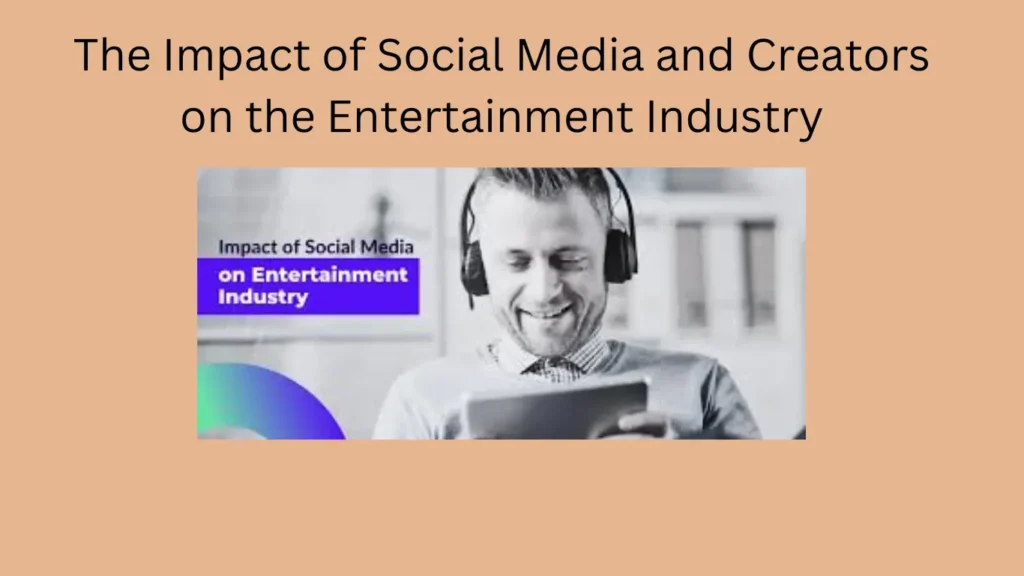The entertainment industry has undergone a significant transformation with the rise of social media and content creators. These platforms and individuals have reshaped how entertainment is produced, distributed, and consumed. This guide explores the profound impact of social media and creators on the entertainment landscape, emphasizing a helpful, reliable, and people-first approach.
1. Democratization of Content Creation
Social media platforms like YouTube, Instagram, TikTok, and Twitch have democratized content creation. Aspiring creators no longer need to rely on traditional gatekeepers such as TV networks or record labels to showcase their talents. With just a smartphone and internet access, anyone can create and share content with a global audience.
Helpful Insight: Empowering individuals to create and share their unique perspectives fosters a diverse and rich entertainment ecosystem. Aspiring creators should focus on producing authentic and engaging content to build a loyal audience.
2. Direct Audience Engagement
Creators on social media can engage directly with their audience, unlike traditional media where the interaction is often one-sided. Platforms offer tools like comments, likes, shares, and live streaming, which allow creators to receive immediate feedback and build a community around their content.
Reliable Engagement: Regularly interacting with followers, responding to comments, and incorporating audience feedback into content can help creators build trust and a sense of community.
3. New Revenue Streams
Social media has introduced new revenue models for creators, including ad revenue, brand partnerships, sponsored content, and fan donations through platforms like Patreon. This shift has allowed creators to monetize their content and sustain their creative endeavors.
People-First Approach: Transparency with the audience about sponsorships and monetization methods ensures trust. Creators should prioritize partnerships that align with their values and resonate with their audience.
4. Influence on Mainstream Media
Social media trends and viral content often influence mainstream media. Creators who gain substantial followings on social media platforms are frequently sought after by traditional media companies for collaborations, TV shows, movies, and music deals. This crossover highlights the growing importance of social media in shaping popular culture.
Helpful Strategy: Creators should leverage their social media presence to explore opportunities in traditional media while maintaining their unique voice and authenticity.
5. Content Diversity and Representation
Social media has enabled a broader range of voices and perspectives to be heard. Creators from diverse backgrounds can share their stories and experiences, contributing to a more inclusive entertainment industry. This diversity enriches the content available and reflects the varied experiences of a global audience.
Reliable Content: Supporting and promoting diverse creators helps build a more inclusive entertainment landscape. Creators should be mindful of representation and inclusivity in their content.
6. Real-Time Trends and Feedback
Social media allows for real-time tracking of trends and audience preferences. Creators can quickly adapt their content based on what is resonating with their audience, leading to more relevant and engaging entertainment.
People-First Feedback: Use analytics and direct feedback to refine and improve content. Listening to the audience ensures that creators remain attuned to their interests and needs.
Conclusion
The impact of social media and creators on the entertainment industry is profound, driving democratization, direct engagement, new revenue models, mainstream influence, diversity, and real-time feedback. By adopting a helpful, reliable, and people-first approach, creators can navigate this dynamic landscape effectively, contributing to a vibrant and inclusive entertainment ecosystem.
For further Inquires Contact Us
FAQs
1. How have social media platforms democratized content creation?
Social media platforms allow anyone with internet access to create and share content, bypassing traditional media gatekeepers and reaching global audiences.
2. How do social media creators engage with their audience?
Creators use tools like comments, likes, shares, and live streaming to interact with their audience, receive feedback, and build a community around their content.
3. What new revenue streams are available for social media creators?
Creators can earn through ad revenue, brand partnerships, sponsored content, and fan donations via platforms like Patreon, enabling them to monetize their work sustainably.
4. How do social media trends influence mainstream media?
Viral content and trends from social media often impact mainstream media, with creators crossing over into TV, movies, and music, highlighting social media’s role in shaping popular culture.
5. How does social media contribute to diversity in entertainment?
Social media allows creators from diverse backgrounds to share their stories and experiences, promoting inclusivity and reflecting the varied experiences of a global audience.

